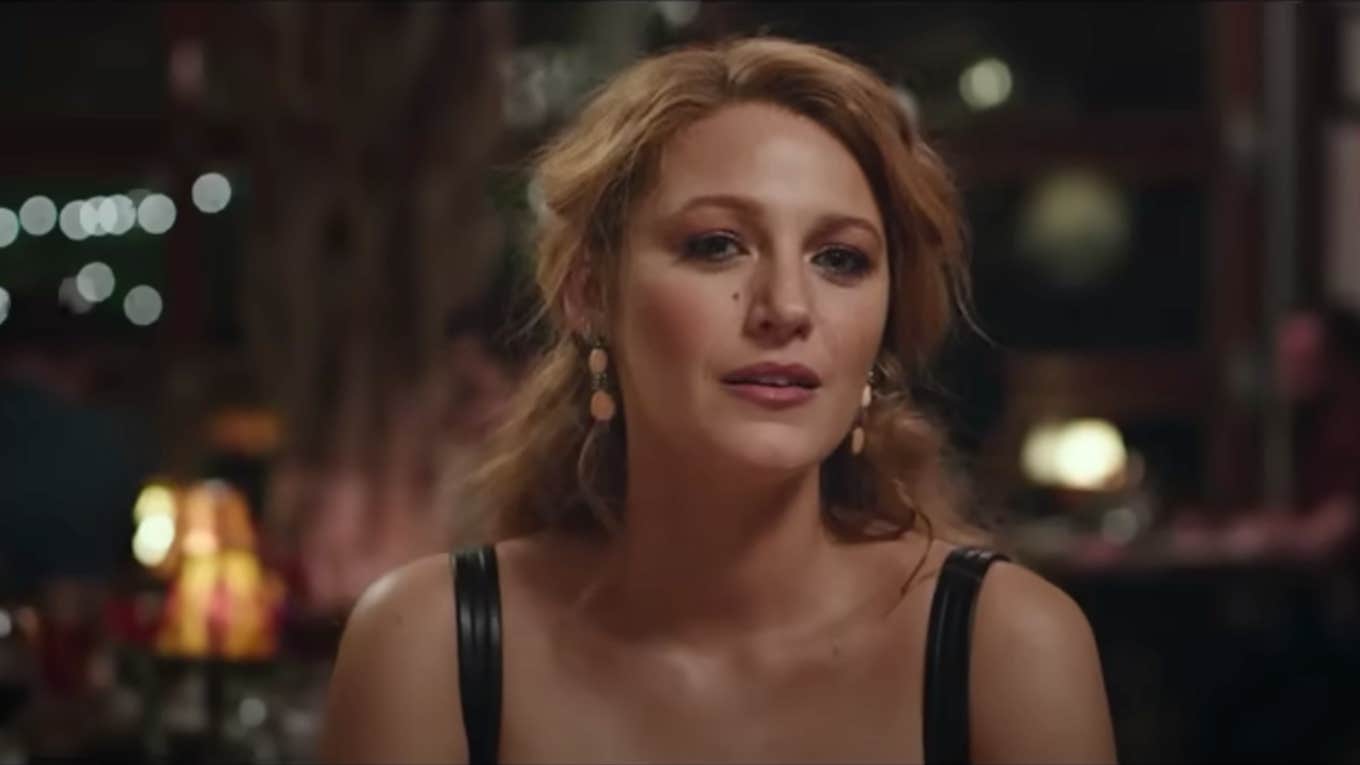Natural Redhead Expresses Why Blake Lively Dyeing Her Hair Red For The Lead Of 'It Ends With Us' Bothers Her
She argued there is a culturally different experience between being born a redhead and dyeing your hair red.
 Sony Pictures Entertainment
Sony Pictures Entertainment As many fans of Colleen Hoover’s “It Ends With Us” novel know, the lead character, Lily Bloom, is supposed to be a natural redhead.
The live-action of the story premiered in theaters on August 9, with “Gossip Girl” star Blake Lively cast as the lead. However, this casting decision has resulted in significant backlash from fans who believe Lively was not the best fit for this role.
One natural redhead shared why she feels Lively playing Bloom’s character misrepresents the redhead community.
Faith, who goes by @faithieeanne on TikTok, took to the app to discuss her personal take on the controversy.
“Let me pretext this by saying I was absolutely treated differently my whole childhood, my whole life, for being a redhead, not in the way people that have different races are, obviously, but in the way that I’m fetishized, bullied … because of my hair color, so it has set me apart,” Faith explained.
She firmly argued that people who choose to dye their hair red later in life are not authentic gingers, as they can’t relate to the experience of growing up with red hair. As Faith emphasized, this is not a particularly serious issue. However, many individuals who grew up with naturally red hair can relate to feeling like an outcast in their communities.
While most individuals would argue that red hair is a rare and special gene that many are envious of, it doesn’t validate the unique experiences of gingers who grow up feeling insecure and less worthy because of their atypical hair color.
Faith explained that in the book "It Ends With Us," Bloom is depicted as a “very red-headed character” with experiences that many natural gingers can relate to. So when the naturally blond Lively was cast to play the role with dyed red hair in the film adaptation, fans were confused and disappointed. In fact, the younger version of Bloom’s character in the movie is also a blonde actress with dyed red hair.
TikTokers in the comments agreed that growing up with red hair can be a ‘traumatic’ experience.
TikTokers argued that people don’t fully comprehend the complex experience of growing up with naturally red hair, and they find it unfair that the media frequently invalidates and misrepresents their community.
“They’ll never understand the trauma that comes from going through middle school with red hair,” one individual commented. “This is valid; my mom is a redhead, and she’s told me so many stories about her childhood bullies, and I am so fiercely protective of all my redhead friends now,” another person shared.
"I have red hair too, and it is a weird, unique experience, but then redhead characters are the first to be replaced or edited out in some way," someone else argued.
“Fake red here — my old boss LOVED using the red hair as part of his bullying tactics,” another individual identified. “Between that and the sexualization, I got whiplash. Y’all deserve to have your stories told and represented properly!!”
The film doesn’t seem to appropriately depict or represent Bloom's experience in the novel.
While actors and actresses are meant to mold into the characters they play in films, Faith’s argument speaks to a unique issue that redheads can all agree on. She expressed why this casting decision didn't sit well with her and argued that it largely misrepresents the genuine experience of a natural redhead.
“It just sucks, like the representation you’re getting for your hair color is, like, not real, and it’s really not that big of a deal truly, but it is to me,” Faith emphasized. “It just bothers me, like, [Lively] is a great actress and she shouldn’t lose her role because she’s not a redhead, but, like, there are great redheaded actresses that you could have cast.”
Despite natural redheads only making up about 4-5% of the entire world’s population, their experiences are still valid.
To filmmakers and casting directors, this may not seem like a big deal, as they tend to focus more on the skills and talents of an actor, and hair can easily be dyed for any specific role. But this is actually doing a disservice to the representation of redheads.
“It just really bothers me, especially when I see brands, movies, people who need a redhead, and they don’t pick a redhead — they pick someone with fake red hair,” Faith added. “Being a redhead is a lifelong experience.”
It’s important to clarify that there’s nothing wrong with individuals who choose to dye their hair red out of admiration for the color. Faith’s argument highlighted the media’s underrepresentation of natural redheads, especially considering their unique experience.
Seeing yourself matters.
Francesca Duarte is a writer on YourTango's news and entertainment team based in Orlando, FL. She covers lifestyle, human-interest, adventure, and spirituality topics.

